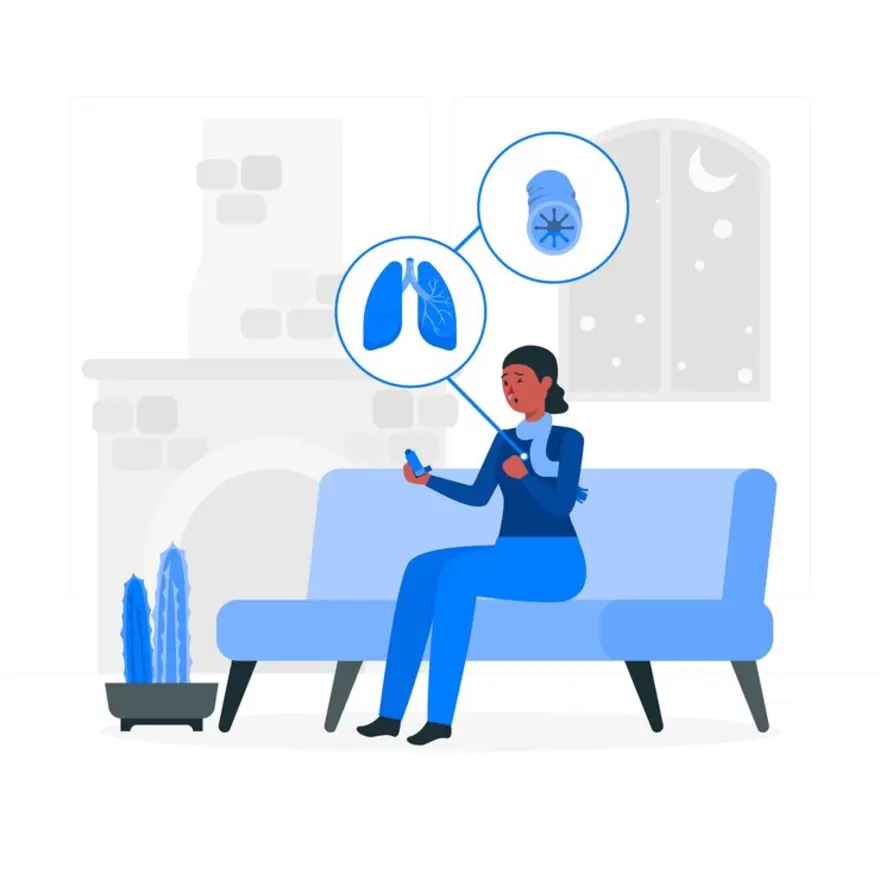Blood Urea Nitrogen BUN Test in Mankhurd
56+ booked in last 3 daysBUN (Blood Urea Nitrogen) Test in Mankhurd Overview
Protein in body are broken down and stored as ammonia and nitrogen in the liver, which is then converted to urea. Urea is carried from the liver to the kidneys via the blood stream. The kidney then gets rid of the urea through urine. The blood urea nitrogen (BUN) test indicates the amount of urea in the blood.
The BUN test measures the amount of urea nitrogen present in your blood. Urea nitrogen (UreaN) is a waste product. It is created when your body breaks down proteins. Too much urea nitrogen can indicate kidney problems. It may also indicate a diet too high in protein.
BUN (Blood Urea Nitrogen) is used to assess the health of the liver and kidneys. The results guide healthcare professionals on how to treat patients.
The BUN test is particularly valuable for diagnosing and monitoring kidney diseases. It helps in the assessment of the effectiveness of treatments like dialysis and can be used to investigate symptoms such as swelling, fatigue, difficulty concentrating, loss of appetite, and sleep problems, all of which may signal kidney issues. The BUN test is also commonly included in routine health check-ups as part of a comprehensive metabolic panel (CMP) or basic metabolic panel (BMP).
What is the BUN Urea Nitrogen Serum test?
The BUN (blood urea nitrogen) test is also known as a blood urea nitrogen test or BUN test. It determines the amount of urea nitrogen in the blood. Urea nitrogen is a waste product that the liver makes and the kidneys get rid of. The BUN test is used to help diagnose and monitor kidney function and detect kidney damage or disease.
The test is performed by drawing a small blood sample from the arm and sending it to a lab to be analyzed. The test measures the amount of urea nitrogen in the blood to determine how the kidneys work. Many things, including dehydration, kidney problems, and some medical conditions such as congestive heart failure and urinary tract infections, can cause an increased BUN level.
What does a BUN Urea Nitrogen Serum test do?
A BUN (urea-nitrogen) serum test is used to:
• Determine how well the kidneys are functioning
• Monitor how well treatment for kidney diseases is working
• Measure if dehydration or overhydration is affecting kidney function
• Identify anaemia and its causes
• Examine if there is any indication of a dietary protein overload
Who should do the BUN Urea Nitrogen Serum test?
This test measures the quantity of urea nitrogen in the bloodstream. It also indicates kidney function. Who should take this test?
-
Individuals who have known or suspected renal disease
-
People suffering from severe renal failure
-
Individuals both before and after an organ transplant
-
Dialysis patients on a long-term basis
-
People having a history of renal illness in their family
-
Anyone suffering from weariness, weakness, disorientation, or decreased productivity
Doctors often suggest performing this test for people who display symptoms like:
• High blood pressure
• Diabetes
• Kidney disease
• Liver disease
• Certain kinds of toxicity or poisoning
• Various kinds of heart disease
• Hypercholesterolemia or elevated cholesterol levels
• Gout
Reasons for Undergoing the BUN (Blood Urea Nitrogen) Test in Mankhurd
There are several reasons why a doctor may recommend a BUN test in Mankhurd:
- To diagnose and monitor kidney diseases
- To assess the effectiveness of treatments for kidney diseases, such as dialysis
- To evaluate symptoms that may be associated with kidney problems, including swelling, fatigue, poor concentration, decreased appetite, and sleep disturbances
- As part of a comprehensive metabolic panel (CMP) or basic metabolic panel (BMP) during routine health check-ups
- For individuals at higher risk of developing kidney disease due to factors such as diabetes, high blood pressure, heart disease, or a family history of kidney problems
List of parameters considered during the BUN (Blood Urea Nitrogen) Test in Mankhurd
The BUN blood test specifically measures the concentration of urea nitrogen in the blood, which is typically reported in milligrams per decilitre (mg/dL):
- Urea Nitrogen: This waste product is generated by the liver during protein metabolism. The kidneys are responsible for filtering out urea nitrogen from the blood. Elevated levels may indicate impaired kidney function, while low levels indicates liver issues or other health conditions.
BUN (Blood Urea Nitrogen) Test Preparation
No special preparation is required for the BUN test in Mankhurd. Some things to keep in mind include:
- Fasting: It is not necessary to fast before the test.
- Medications: Inform your doctor about any medications you are currently taking, as some may influence the test results.
- Bleeding Disorders: If you are have a bleeding disorder or if you are taking any blood-thinning medications, be sure to let your doctor know.
BUN (Blood Urea Nitrogen) Test Results & Interpretation
The results of the BUN test are interpreted as follows:
- Normal Levels: The normal range for BUN varies slightly based on age and sex. For children, it generally falls between 7-20 mg/dL, while for adults, it ranges from 6-24 mg/dL.
- High BUN Levels: Elevated BUN levels suggest that the kidneys may not be filtering waste effectively, which could be because of kidney damage, dehydration, or other underlying conditions.
- Low BUN Levels: Although less common, low BUN levels can indicate liver disease, malnutrition, or overhydration.
- Comprehensive Interpretation: The BUN test results can be interpreted alongside other tests, to gain a comprehensive assessment of kidney function.
Home Collection for BUN (Blood Urea Nitrogen) Test in Mankhurd near you
Metropolis Healthcare offers a convenient home sample collection service for the BUN test in Mankhurd, ensuring a seamless and comfortable experience for the patients. In which a trained phlebotomist will visit your home to collect the blood samples, ensuring the highest standards of safety and proper sample handling. This service allows you to take the test without compromising on the accuracy of the results.
With Metropolis Healthcare's commitment to accessible healthcare, you can expect timely and reliable results, empowering you to take proactive steps in managing your health. By providing quality diagnostic solutions conveniently at home, Metropolis Healthcare aims to make healthcare more accessible and convenient for everyone.
Blood Urea Nitrogen BUN Test Price in Mankhurd
Metropolis Healthcare is a leading diagnostics centre and pathology lab in India equipped with the latest state-of-the-art technologies that provides the Blood Urea Nitrogen BUN Test with a clear pricing structure
The price of Blood Urea Nitrogen BUN Test in Mankhurd is ₹ 260
We are committed to deliver accurate and quality results from the best labs in India with complete transparency regarding test cost and turnaround time. No matter where you are, we strive to offer patients high-quality service that is affordable and accessible.
Frequently Asked Questions
The BUN test, or blood urea nitrogen test, measures the amount of urea nitrogen present in your blood. It helps evaluate kidney function and can be used to diagnose kidney or liver diseases.
To book a BUN blood test in Mankhurd, visit Metropolis Healthcare labs. You can easily schedule home sample collection for the BUN Test through their website or mobile app, making it convenient to get tested from the comfort of your home. Metropolis offers a reliable, accessible, and timely testing options throughout the city.
Metropolis Healthcare offers home sample collection for the BUN blood test, making it convenient to have your blood sample collected at your doorstep. They ensure reliable, timely, and accurate results, providing a hassle-free testing experience.
The BUN test is recommended for anyone who is suspected of having kidney or liver issues, those who are at risk of kidney disease due to conditions like diabetes or high blood pressure, and as part of routine health check-ups.
Normal BUN levels typically range from 7 to 20 mg/dL for children and 6 to 24 mg/dL for adults, with slight variations based on age and sex.
The BUN test is used to diagnose and monitor kidney diseases, assess kidney function, and evaluate the effectiveness of treatments for kidney diseases.
The frequency of BUN blood test depends on your health condition and your healthcare provider's advice. It is often part of regular health check-ups or monitoring for those with kidney disease.
The BUN test indicates how well your kidneys are filtering out waste through your blood. Elevated levels indicates kidney dysfunction, while low levels could indicate liver issues or other conditions.
You can get the BUN test done at any time during the day, as fasting is not required for this test.
Fasting is not required for the BUN test. You can have it done at any time that suits you during the day. Your healthcare provider will inform you if there are any specific instructions to follow.
Make sure to inform your healthcare provider about any medications you're taking, as well as any bleeding disorders or blood-thinning medications, before undergoing the BUN test.
The BUN test specifically measures the amount of urea nitrogen in your blood, which is a waste product produced by your liver when it breaks down proteins.
The BUN test requires a small blood sample to be drawn from a vein in your arm using a needle. The procedure is typically quick and causes minimal discomfort.
The BUN test is advised when symptoms or risk factors for kidney disease are evident, as part of a comprehensive metabolic panel, or to assess the effectiveness of treatments for kidney disease.
The blood collection process for the BUN test is quick and typically takes only a few minutes.
BUN test reports are typically available within 6 hours, depending on when the sample was collected and processed.
Ratings & Reviews (0)
Why Metropolis?
Metropolis has a team of 200 senior pathologists and over 2000 technicians delivering diagnostic solutions in the areas of routine, semi specialty and super specialty domains like Oncology, Neurology, Gynaecology, Nephrology and many more.
We offer a comprehensive range of 4000+ clinical laboratory tests and profiles, which are used for prediction, early detection, diagnostic screening, confirmation and/or monitoring of the disease.



.png)
















 WhatsApp
WhatsApp